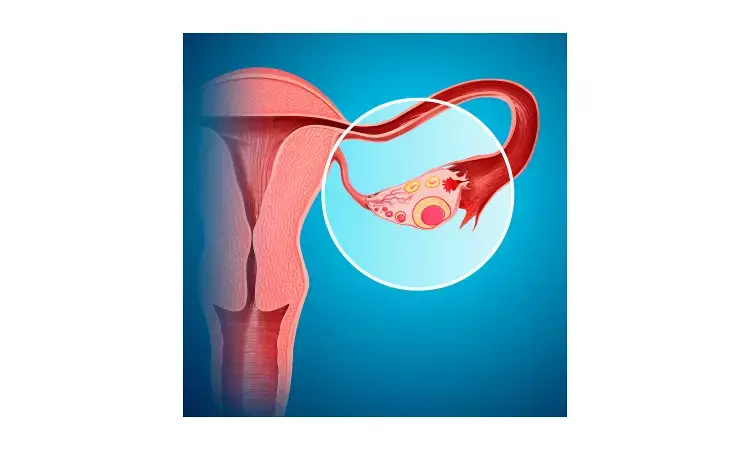- Home
- Medical news & Guidelines
- Anesthesiology
- Cardiology and CTVS
- Critical Care
- Dentistry
- Dermatology
- Diabetes and Endocrinology
- ENT
- Gastroenterology
- Medicine
- Nephrology
- Neurology
- Obstretics-Gynaecology
- Oncology
- Ophthalmology
- Orthopaedics
- Pediatrics-Neonatology
- Psychiatry
- Pulmonology
- Radiology
- Surgery
- Urology
- Laboratory Medicine
- Diet
- Nursing
- Paramedical
- Physiotherapy
- Health news
- Fact Check
- Bone Health Fact Check
- Brain Health Fact Check
- Cancer Related Fact Check
- Child Care Fact Check
- Dental and oral health fact check
- Diabetes and metabolic health fact check
- Diet and Nutrition Fact Check
- Eye and ENT Care Fact Check
- Fitness fact check
- Gut health fact check
- Heart health fact check
- Kidney health fact check
- Medical education fact check
- Men's health fact check
- Respiratory fact check
- Skin and hair care fact check
- Vaccine and Immunization fact check
- Women's health fact check
- AYUSH
- State News
- Andaman and Nicobar Islands
- Andhra Pradesh
- Arunachal Pradesh
- Assam
- Bihar
- Chandigarh
- Chattisgarh
- Dadra and Nagar Haveli
- Daman and Diu
- Delhi
- Goa
- Gujarat
- Haryana
- Himachal Pradesh
- Jammu & Kashmir
- Jharkhand
- Karnataka
- Kerala
- Ladakh
- Lakshadweep
- Madhya Pradesh
- Maharashtra
- Manipur
- Meghalaya
- Mizoram
- Nagaland
- Odisha
- Puducherry
- Punjab
- Rajasthan
- Sikkim
- Tamil Nadu
- Telangana
- Tripura
- Uttar Pradesh
- Uttrakhand
- West Bengal
- Medical Education
- Industry
Bilateral oophorectomy before menopause affects cognitive ability: JAMA

Rochester, MN: A case-control study by Walter A. Rocca, MD, MPH, and team revealed that women who underwent bilateral oophorectomy before menopause were at increased risk of developing mild cognitive impairment (MCI). Also, such women performed poorly on cognitive tests approximately 30 years later compared with women who did not undergo bilateral oophorectomy. The findings of the study are published in JAMA Network Open.
Preventive (prophylactic) bilateral oophorectomy is a preventive surgery to remove the ovaries for people with a high risk of ovarian and breast cancer. It carries benefits and risks that must be carefully balanced when considering this procedure. The use of estrogen therapy after oophorectomy with cognitive performance later in life remains controversial.
The objective of the study was to investigate whether women who underwent premenopausal bilateral oophorectomy were at increased risk of MCI and experienced decreased global or domain-specific cognitive performance.
The study was a case-control and cross-sectional study by combining data from the Mayo Clinic Study of Aging (MCSA) and the Rochester Epidemiology Project (REP) medical record–linkage system. The studies were conducted among a population-based sample in Olmsted County, Minnesota, consisting of 2732 women aged 50 to 89 years who participated in the MCSA study from 2004 to 2019 and underwent a clinical evaluation and comprehensive cognitive testing. Data were analyzed from January to May 2021.
The results of the study were
• Bilateral oophorectomy before menopause and before age 46 years was associated with clinically diagnosed MCI compared with no bilateral oophorectomy.
• The presence of an association with MCI varied by surgical indication, with an association among 259 women with bilateral oophorectomy before menopause and before age 50 years for the indication of benign ovarian condition (aOR, 2.430) but not for cancer or no ovarian condition.
• The presence of an association did not vary by estrogen therapy after bilateral oophorectomy, with associations among women aged less than 46 years with estrogen therapy (aOR, 2.56) and without estrogen therapy (aOR, 2.05).
• Premenopausal bilateral oophorectomy was performed before age 46 years among 161 women and was associated with decreased global cognition z score (β, −0.17), attention and executive domain z score (β, −0.21), and Short Test of Mental Status score (β, −0.51) compared with no bilateral oophorectomy.
Dr. Rocca, and the team concluded that "This study found that women who underwent bilateral oophorectomy before menopause had increased odds of MCI and poorer performance on cognitive tests approximately 30 years later compared with women who did not undergo bilateral oophorectomy."
Reference: Rocca WA, Lohse CM, Smith CY, Fields JA, Machulda MM, Mielke MM. Association of Premenopausal Bilateral Oophorectomy With Cognitive Performance and Risk of Mild Cognitive Impairment. JAMA Netw Open. 2021;4(11):e2131448. doi:10.1001/jamanetworkopen.2021.31448
Medical Dialogues consists of a team of passionate medical/scientific writers, led by doctors and healthcare researchers. Our team efforts to bring you updated and timely news about the important happenings of the medical and healthcare sector. Our editorial team can be reached at editorial@medicaldialogues.in.
Dr Kamal Kant Kohli-MBBS, DTCD- a chest specialist with more than 30 years of practice and a flair for writing clinical articles, Dr Kamal Kant Kohli joined Medical Dialogues as a Chief Editor of Medical News. Besides writing articles, as an editor, he proofreads and verifies all the medical content published on Medical Dialogues including those coming from journals, studies,medical conferences,guidelines etc. Email: drkohli@medicaldialogues.in. Contact no. 011-43720751


